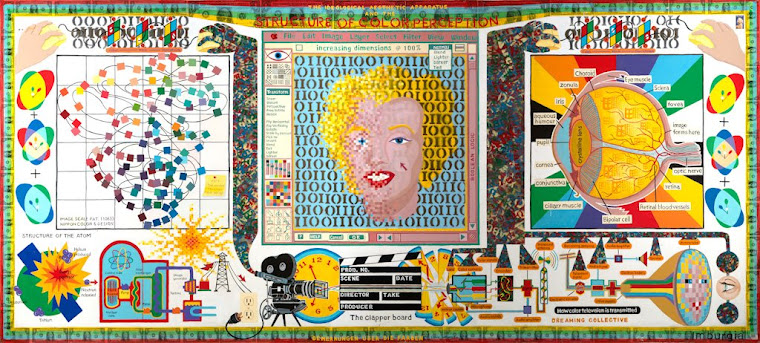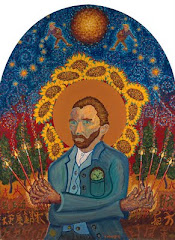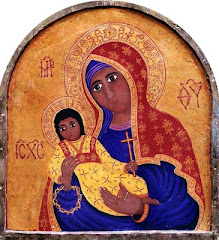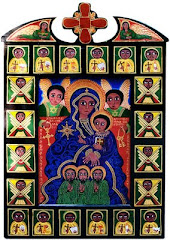Ben Myers at the blog “Faith and Theology” posted a remarkable story about his family’s immediate experience of the accidental death of a 4 year old child. The part of the story where his wife tried to breathe life back into the child as he lay in the road while Ben comforted the boy’s sister was the most emotionally intense for me. How to be with the survivors of tragic death is a question we shouldn't have easy answers for. I think Ben’s story does excellent work in exposing us to the painful complexities of these kinds of tragedies. I have been on many sides of the story of death though (even my own) and there is something that is not mentioned in Ben’s story (but who knows, maybe that is for the best?). There can be a kind of base devolution of one’s cognitive faculties when you stand by the bedside of your own dying child or at the funeral of a grandchild. Another strange manifestation of yourself can seem to emerge from some dark distant epoch. I am tempted to use the word “primal” to describe this but I’m not sure how much I want to believe in that. We sometimes catch a glimpse of this strange beast at various times. Like Ben, I have also been at the deaths of other people’s children, and God help me but I could not repress the intense feeling of being thankful that the dead child wasn’t one of mine. I have also been so sure that the parents of dead children could see that shameful thankfulness in my eyes that I would avoid encountering the faces of grieving parents as much as possible. But of course they probably already knew or could sense what I and other parents were feeling, just like I knew when people avoided looking into my own pleading eyes. Perhaps more despairing and frightening is the thought that the dead children of others acts as some sort of sacrifice that just might appease the angry gods for a time and make my own children safer from the petulant vengeance of an angry god.
I have been watching the new TV series “The Vikings.” I don’t really recommend it but the last 2 episodes deal a lot with religion and death. I can’t speak to how historically accurate this show might be but I sometimes find myself uncomfortably identifying with their pagan religious compunctions and practices. For all of the complex theology that we Christians have composed and compiled from Ignatius of Antioch and Augustine to Barth and Von Balthasar, I’m not sure that there is a profound distance/difference between the religion of these pagan Vikings and most of what passes as Christianity, at least at the emotional and practical levels of being. In this show, the vikings tearfully plead before large wooden statues of their gods for the lives of their children, they beg for bountiful harvests, they bargain for profitable business ventures, and pray for victory at battle and the death of their enemies. How different is this from most historical american religious practice--except that their human sacrifices are named as such, and ours are often hidden behind metaphors and allegorical spectacles. And when their children died, their crops failed, or they lost at war, these pagans asked the same questions that most of us ask: where was god?
"Soon afterwards Jesus went to a town called Nain, and his disciples and a large crowd went with him. As he approached the gate of the town, a man who had died was being carried out. He was his mother's only son, and she was a widow; and with her was a large crowd from the town. When the Lord saw her, he had compassion for her and said to her, "Do not weep." Then he came forward and touched the bier, and the bearers stood still. And he said, "Young man, I say to you, rise!" The dead man sat up and began to speak, and Jesus gave him to his mother. Fear seized all of them; and they glorified God, saying, "A great prophet has risen among us!" and "God has looked favorably on his people!" This word about him spread throughout Judea and all the surrounding country". -Luke 7:11-17
Much obliged.













No comments:
Post a Comment